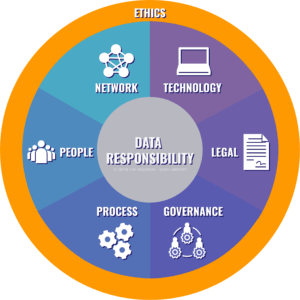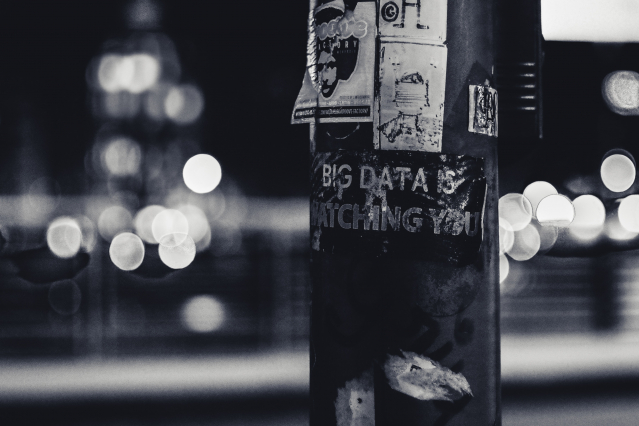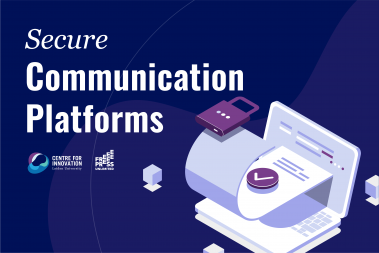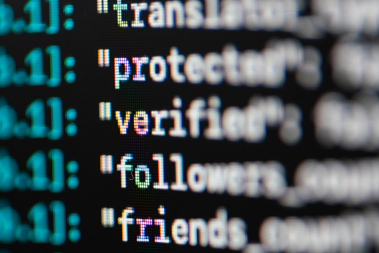Data Responsibility and Intellectual Property
For education institutions to benefit from emerging technologies, they must also face their complex challenges, such as data responsibility and intellectual property (IP). We use our expertise in these areas to facilitate Leiden University and other partners to use technology to enhance their education or ways of working in an ethical and responsible way that mitigates its potential risks.
Data Responsibility
 Data responsibility is a holistic approach to mitigating risks of introducing new technologies. It protects the security and rights of individuals exposed to data collection, and ensures the ethical and fair integration of data-driven methodologies and technologies. Through our research and projects, we developed the Holistic Data Responsibility Framework. This Framework outlines six core elements which form the foundation data responsibility, Technology, Legal, Governance, Process, People and Network, with Ethics overarching and shaping these elements.
Data responsibility is a holistic approach to mitigating risks of introducing new technologies. It protects the security and rights of individuals exposed to data collection, and ensures the ethical and fair integration of data-driven methodologies and technologies. Through our research and projects, we developed the Holistic Data Responsibility Framework. This Framework outlines six core elements which form the foundation data responsibility, Technology, Legal, Governance, Process, People and Network, with Ethics overarching and shaping these elements.
Read more
The Holistic Data Responsibility Framework
The Holistic Data Responsibility Framework in Projects: Effective and Ethical Implementation


The data responsibility team aim to create cross-sectoral knowledge on the topic of data responsibility. We do this through engagement with key actors from universities, government bodies, humanitarian organisations, NGOs, and private sector organisations. From our research and projects, we help organisations pivot to data responsible approaches to the use of technology.
Read more
Data responsibility in higher education
Digital technology is being integrated into higher education at an exponential rate. This increased use of technology means an increasing amount of data generation and collection. This data can be used for institutional decision-making but also to augment education. Bringing a data responsibility lens to all aspects of our work, our holistic approach allows us to go beyond mitigating risks to proactively protecting the security and rights of students, teachers and staff.
The Leiden Learning & Innovation Centre works with the University to support their digitisation efforts in terms of strategy and technology. Our aim is to think outside the box and ahead of the curve about topics that will ensure the University, and the education sector, upholds an appropriate duty of care as they embrace the technological future.
Intellectual Property
IP and Innovation
Intellectual property is a crucial part of the innovation process. From the invention of the printing press and the first copyright rules, to today, where digital technologies are using and mixing code, videos, algorithm, and audio-visual content, managing IP has also evolved to face these challenges. However, there are still many challenges that need to be addressed.
We help our partners arrive at best-possible IP strategies and consider the particularities of technology to ensure that longevity and sustainability of any creative work. IP is a major consideration from the start of any project. Neglecting IP can expose any technological or creative project to major obstacles and risks later in the process.
IP at the Leiden Learning & Innovation Centre
We address IP issues throughout the innovation process. From ideation to institutionalisation and after-market considerations.
Accordingly, we facilitate our partners to:
- Assess the viability of innovative ideas and possible projects: where is the value? How can we protect it? How to share or transfer the knowledge?
- Identify and implement the best strategy for the selected technology: developing an open-source strategy; registering rights; licensing; assignments of rights; etc.
- Raise awareness within the innovation ecosystem. IP should be embedded into the organisation’s culture. Creating silos of knowledge will hinder innovation by limiting people’s ability to easily understand technical and normative structures. So, it is crucial to keep a continuous training program aimed at all the members of the organisation, irrespective of their background.
IP in higher education
In education and academia knowledge transfer is essential. Consequently, both national and international regulators have approved special rules when it comes to sharing content for educational or research purposes. Unfortunately, these rules are not homogenous across different countries and technological fields. Accordingly, a thoughtful evaluation of the factors involved in education is key to choose the correct approach for sharing knowledge without infringing third parties’ rights and maximising knowledge exchange. This process should always be done considering the purpose sought by educators and researchers without undermining the students’ special rights and interests.
At the Centre, we focus on developing open-source and open-access strategies for the material developed by our staff, teachers and researchers. Also, we work closely with higher education stakeholders to create ideal conditions for the transference of knowledge and to provide the public with access to educational content while incentivising content creation in this field.
GET IN TOUCH
Reach out to us if you want to learn more.
Read more
- The Holistic Data Responsibility Framework
- The Holistic Data Responsibility Framework in Projects: Effective and Ethical Implementation
- My Data 2020: Building inclusive smart cities
- Report: Secure Communication Platforms
- Personal Data in Remote Teaching
- Remote Teaching: Choosing your Tools
- What would it take for a company like Palantir to become an acceptable ally?
- GDPR: Challenges and Opportunities in Innovation




